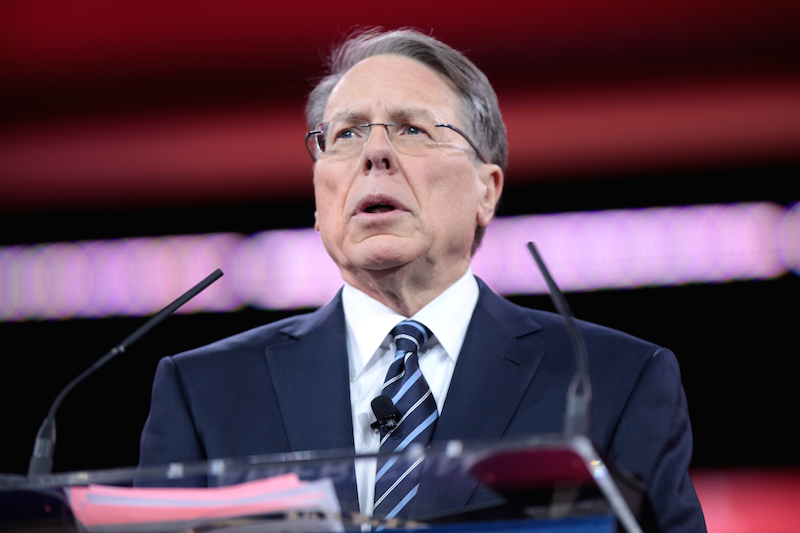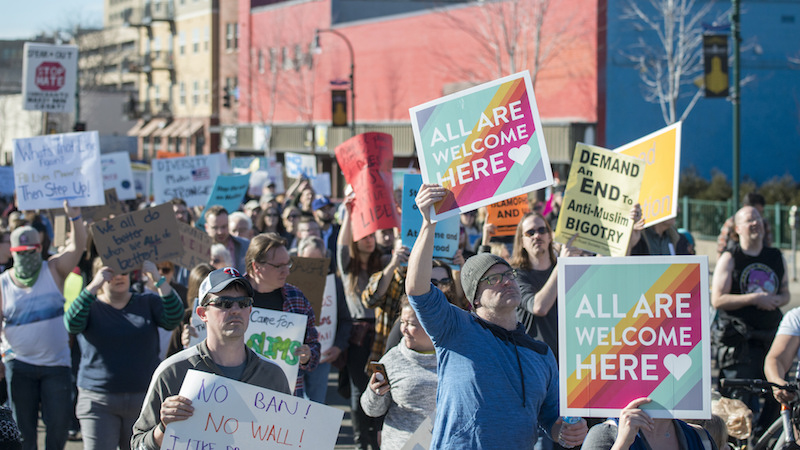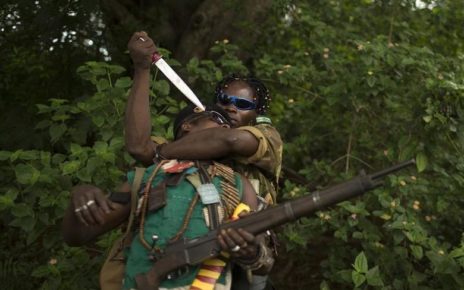To read part one of ‘Race and the Politics of Guns,’ click here.
In the politics of guns in America, race has played a central role – one that neither gun rights nor gun control advocates can escape. And in today’s gun debates, race remains as critical as it ever was before.
Take a look, for instance, at the divide in current attitudes toward guns in terms of race. Whereas the Pew Research Centre found 57% of White Americans saw gun rights as more important than gun control in 2015, only 24% of Blacks felt the same. Strikingly, almost three quarters (72%) of Blacks viewed gun control as the more important of the two.
Just as most Whites prioritize gun rights over gun control, they’re also at the top when it comes to gun ownership. Data from the 2012 American National Election Study (ANES) show they make up 84 percent of gun-owners, yet 63 percent of the American population at large.
Given the highly racialized outcomes of gun violence in the US today, such a split between White and Black Americans is perhaps unsurprising. From 2000 to 2010, gun violence was twice more likely to kill Blacks than Whites, according to data from the Centers for Disease Control and Prevention (CDC). And while 83% of gun-related deaths among Whites were suicides, those for Blacks were overwhelmingly homicides, at 85% – the total reverse. The journalism non-profit ProPublica found, moreover, that Black men and boys died from gun homicides at 21 times the rate of their White counterparts in 2014.
Black Americans’ majority support for some form of gun control makes sense, then, in light of the disproportionate impact of gun violence on their community. Yet the tendency of White Americans to occupy the other end of the spectrum is scarcely a coincidence either.
Consider these two studies. The first, by behavioural scientist Kerry O’Brien and colleagues, analyzed ANES survey data to find Whites who showed high levels of ‘symbolic racism’ – implicit, often subconscious anti-Black attitudes and the identification of certain policies (e.g. welfare) with Blackness – were more likely to oppose gun control and own firearms.
In the second, political scientists Alexandra Filindra and Noah J. Kaplan conducted an experiment on a sample of 1,200 White Americans, using the popular Implicit Association Test. They observed that participants who’d been shown pictures of Black people during this test were less likely to support gun control measures in a subsequent survey, especially if they also scored high on racial bias. Like O’Brien, Filindra and Kaplan interpreted these results to suggest that Whites with strong anti-Black prejudices were more likely to oppose gun restrictions and own guns themselves. Their explanation: guns symbolize to Whites the privilege they’ve historically enjoyed, yet see under threat in a rapidly changing, diversifying society.
The face of gun violence in modern America remains deeply racialized indeed. Addressing it becomes, then, not just a matter of public safety, but of racial justice.
And to be clear: the greater frequency with which the Black community experiences gun violence is not due to anything inherent about it (i.e. the myth of ‘Black criminality’). The problem is structural. For example, a joint report this year by the Urban Institute, Joyce Foundation, and Joint Center for Political and Economic Studies attributed the high rates of gun violence in communities of colour to the ease of firearms access for “high-risk” individuals, poor community-police relations, and a lack of social and economic investment.
So, for argument’s sake, say we were to accept that the status quo on guns needed to change. Would the answer be, as many liberals and progressives have suggested, ‘common sense’ gun reforms?
Not necessarily – and that’s far from being an endorsement of gun rights. We’ve seen already how gun control has a racist history in the US. Even now, restrictions on gun possession that do exist in various states work to harm rather than protect communities of colour, in particular through racial profiling.
The New York Civil Liberties Union found, for instance, that Blacks and Latinos have been the “overwhelming target” since 2002 of the New York Police Department’s ‘stop-and-frisk’ practice, which police conduct on pedestrians to search for weapons or contraband. Last year, 83% of those stopped were Black (57%) or Latino (29%). 80% of all cases led to no charge whatsoever.
Of further concern is the possibility these measures would only feed into the system of mass incarceration at play in the US today, or what legal scholar Michelle Alexander has dubbed the “New Jim Crow.” The US has the highest incarceration rate in the world, with 693 people behind bars for every 100,000 residents, and a total prison population of 2.3 million. Crucially, its prisons house people of colour to a staggering degree.
According to the DC non-profit The Sentencing Project, Blacks are incarcerated at 5.1 times the rate of Whites at the state level, and 10 times that in New Jersey, Wisconsin, Minnesota, Iowa, and Vermont. In a 2013 report to the UN Human Rights Committee, The Sentencing Project revealed that “African Americans are more likely than white Americans to be arrested; once arrested, they are more likely to be convicted; and once convicted, they are more likely to face stiff sentences.”
Hence the reason why Black Lives Matter and its allies have held back from supporting conventional gun reforms full on: should the goal of reducing gun violence be racial justice, then gun restrictions that contributed to racial profiling or mass incarceration would be counterproductive.
So, given the extent to which both gun rights and gun control are implicated in racism, what’s there to be done about America’s ‘gun problem’?
That’s a question far beyond what could ever be addressed here. One thing, however, remains certain: for discussion on gun violence in America to be worthwhile, that dirty word of American politics needs to be central. It starts with ‘r.’
Photo: National Rifle Association President Wayne LaPierre (2015), by Gage Skidmore via Flickr. Licensed under CC BY-SA 2.0.
Disclaimer: Any views or opinions expressed in articles are solely those of the authors and do not necessarily represent the views of the NATO Association of Canada.




